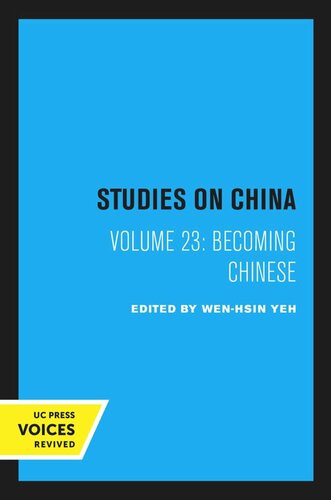

Most ebook files are in PDF format, so you can easily read them using various software such as Foxit Reader or directly on the Google Chrome browser.
Some ebook files are released by publishers in other formats such as .awz, .mobi, .epub, .fb2, etc. You may need to install specific software to read these formats on mobile/PC, such as Calibre.
Please read the tutorial at this link: https://ebookbell.com/faq
We offer FREE conversion to the popular formats you request; however, this may take some time. Therefore, right after payment, please email us, and we will try to provide the service as quickly as possible.
For some exceptional file formats or broken links (if any), please refrain from opening any disputes. Instead, email us first, and we will try to assist within a maximum of 6 hours.
EbookBell Team

0.0
0 reviewsThis volume evaluates the dual roles of war and modernity in the transformation of twentieth-century Chinese identity. The contributors, all leading researchers, argue that war, no less than revolution, deserves attention as a major force in the making of twentieth-century Chinese history. Further, they show that modernity in material culture and changes in intellectual consciousness should serve as twin foci of a new wave of scholarly analysis. Examining in particular the rise of modern Chinese cities and the making of the Chinese nation-state, the contributors to this interdisciplinary volume of cultural history provide new ways of thinking about China's modern transformation up to the 1950s. Taken together, the essays demonstrate that the combined effect of a modernizing state and an industrializing economy weakened the Chinese bourgeoisie and undercut the individual's quest for autonomy. Drawing upon new archival sources, these theoretically informed, thoroughly revisionist essays focus on topics such as Western-inspired modernity, urban cosmopolitanism, consumer culture, gender relationships, interchanges between city and countryside, and the growing impact of the state on the lives of individuals. The volume makes an important contribution toward a postsocialist understanding of twentieth-century China.